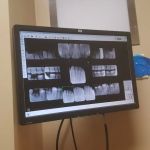Effective Treatment for Tooth Decay in Permanent Teeth
- What is Tooth Decay?
- Signs of Tooth Decay in Permanent Teeth
- Treatment Options for Tooth Decay
- Preventing Tooth Decay in Permanent Teeth
- Real Case Study: A Journey to Restored Oral Health
- Act Now: Invest in Your Oral Health
What is Tooth Decay?
Tooth decay, also known as dental caries, is the process by which teeth break down due to the activity of harmful bacteria. These bacteria produce acids that erode tooth enamel, leading to cavities. Over time, if left untreated, tooth decay can damage deeper layers of the tooth, even reaching the nerve, resulting in pain and further complications.
Signs of Tooth Decay in Permanent Teeth
Identifying tooth decay early is crucial for effective treatment. Some common signs of decay in permanent teeth include:
- Persistent toothache
- Sensitivity to hot, cold, or sweet foods and drinks
- Visible holes or pits in the teeth
- Staining on the tooth surface (brown, black, or white spots)
- Bad breath or unpleasant taste in the mouth
If you experience any of these symptoms, it's important to seek dental care promptly to prevent further damage.
Treatment Options for Tooth Decay
When it comes to treating tooth decay in permanent teeth, early intervention can save the tooth and prevent extensive damage. There are several options available:
- Fillings: For cavities in the enamel, dental fillings are commonly used. These materials, such as composite resin, amalgam, or porcelain, restore the tooth’s structure.
- Crowns: When the decay is more extensive, a crown may be placed to cover and protect the remaining tooth structure.
- Root Canal Treatment: If the decay has reached the pulp (the nerve of the tooth), a root canal may be necessary to remove infected tissue and restore the tooth.
- Tooth Extraction: In extreme cases, when the tooth cannot be saved, extraction may be required. This is usually the last resort after all other options have been exhausted.
Preventing Tooth Decay in Permanent Teeth
The best way to handle tooth decay is to prevent it from happening in the first place. Here are some practical tips to protect your permanent teeth:
- Good Oral Hygiene: Brush your teeth at least twice a day with fluoride toothpaste and floss daily.
- Regular Dental Visits: Schedule routine check-ups and cleanings every 6-12 months to detect early signs of decay.
- Limit Sugary Foods and Drinks: Sugar feeds harmful bacteria in the mouth, leading to decay. Minimize sugary snacks and drinks.
- Fluoride Treatment: Fluoride strengthens enamel and helps prevent decay. Ask your dentist about fluoride treatments.
- Dental Sealants: Sealants are a protective coating applied to the grooves of the back teeth, preventing bacteria from accumulating and causing decay.
Real Case Study: A Journey to Restored Oral Health
Let’s look at a real-life example of how effective treatment can reverse the effects of tooth decay. Sarah, a 32-year-old woman, visited her dentist after experiencing persistent tooth sensitivity. After an examination, the dentist discovered early-stage cavities on her molars. Thanks to early intervention, Sarah received fillings to restore her teeth before the decay spread. Her regular visits and improved oral hygiene practices ensured her teeth remained healthy, preventing further decay.
Act Now: Invest in Your Oral Health
Taking care of your permanent teeth is essential for maintaining overall health and quality of life. If you're experiencing any signs of tooth decay, don't wait for it to worsen. Consult a dentist today to explore treatment options that will restore your teeth and prevent further damage. Healthy teeth lead to a happy smile, so why wait? Invest in your oral health and keep your smile shining!







 Saddle Brook Family Dentistry5.0 (105 review)
Saddle Brook Family Dentistry5.0 (105 review) Chesheim Dental Associates4.0 (103 review)
Chesheim Dental Associates4.0 (103 review) Streitz Dental Arts4.0 (694 review)
Streitz Dental Arts4.0 (694 review) West Coast Dental of South Gate3.0 (495 review)
West Coast Dental of South Gate3.0 (495 review) Generation Family Dental. (Dr. Kailing S. Wu, DDS)4.0 (19 review)
Generation Family Dental. (Dr. Kailing S. Wu, DDS)4.0 (19 review) Dr. Nil Yucel, DDS4.0 (94 review)
Dr. Nil Yucel, DDS4.0 (94 review) The Importance of Oral Health Education During Pregnancy for a Healthy Pregnancy
The Importance of Oral Health Education During Pregnancy for a Healthy Pregnancy Best Tips for Brushing Your Teeth Properly for Healthy Gums: Essential Techniques for Oral Health
Best Tips for Brushing Your Teeth Properly for Healthy Gums: Essential Techniques for Oral Health Why Skipping Dental Checkups Can Lead to Bigger Oral Health Problems
Why Skipping Dental Checkups Can Lead to Bigger Oral Health Problems Advantages of Porcelain Dental Restorations
Advantages of Porcelain Dental Restorations How Can Diabetes Cause Tooth and Gum Problems? Preventing and Managing Oral Health Issues
How Can Diabetes Cause Tooth and Gum Problems? Preventing and Managing Oral Health Issues Healthy Habits for Promoting Good Oral Health and Hygiene: Tips for a Healthy Smile
Healthy Habits for Promoting Good Oral Health and Hygiene: Tips for a Healthy Smile